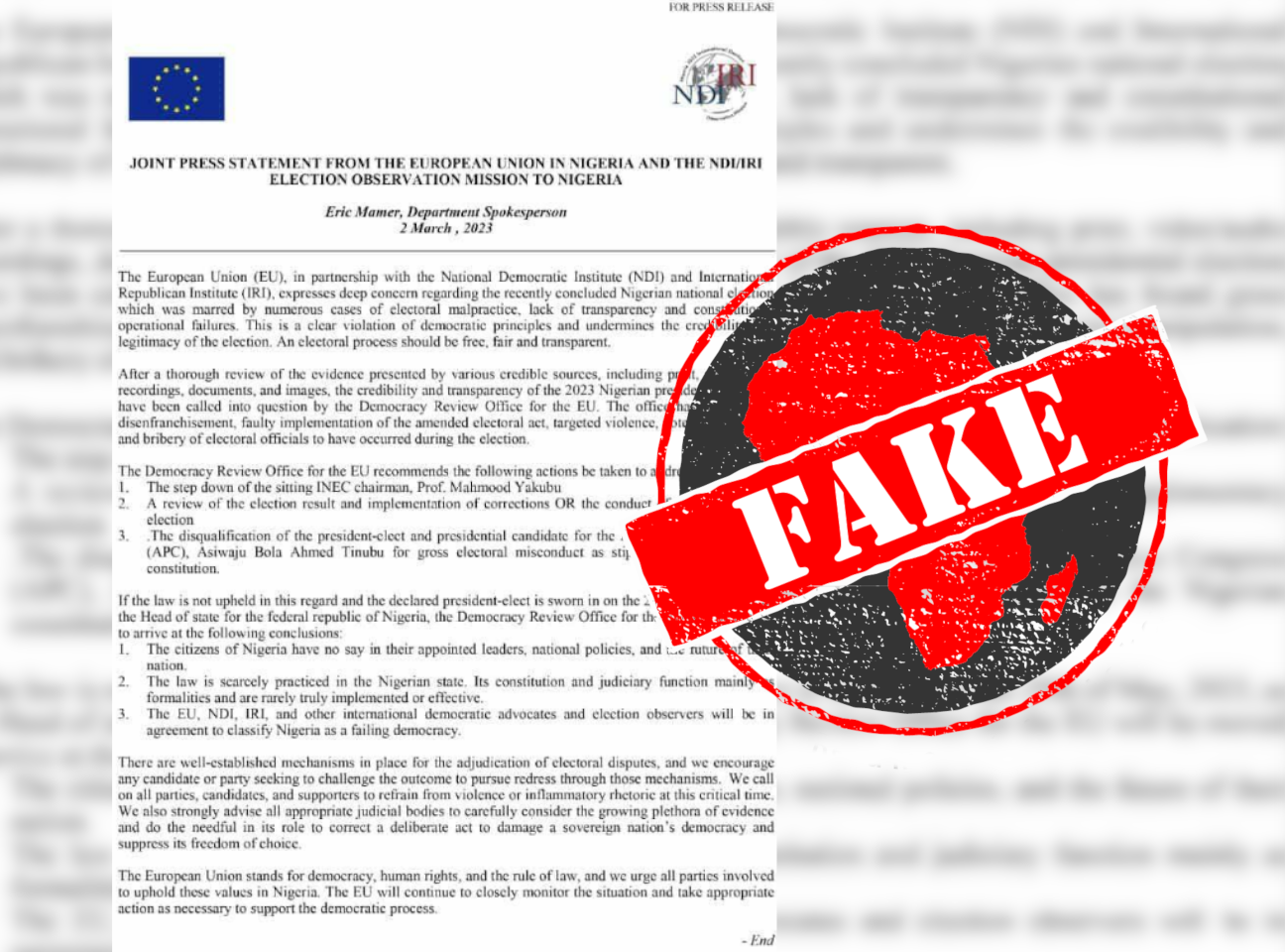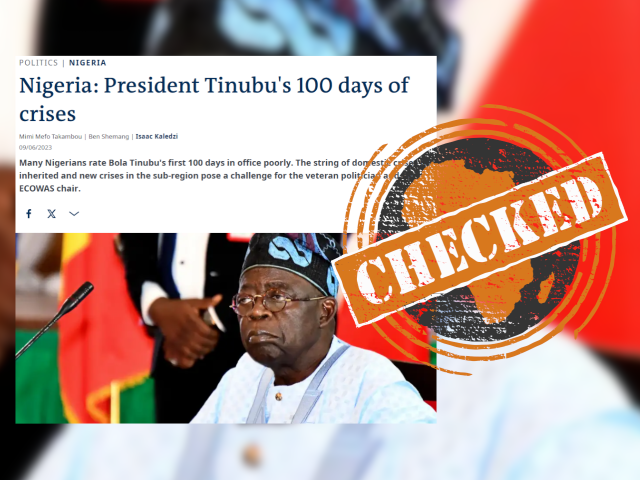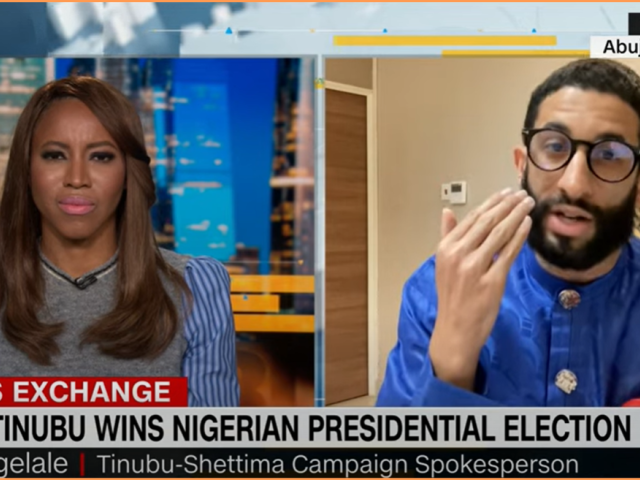IN SHORT: Nigeria's February 2023 presidential election is being challenged in court by some political parties. But international election observers have not issued a strongly worded statement calling for a re-run.
Have observer missions from the European Union (EU) and two other international organisations called for the disqualification of Nigeria’s president-elect Bola Tinubu and the head of the electoral commission?
That’s the claim in what appears to be a screenshot of a press release from the EU, the International Republican Institute (IRI) and the National Democratic Institute (NDI).
It is headlined: “JOINT PRESS STATEMENT FROM THE EUROPEAN UNION IN NIGERIA AND THE NDI/IRI ELECTION OBSERVATION MISSION TO NIGERIA.” The statement is dated 2 March 2023 and signed by “Eric Mamer, Department Spokesperson”.
The EU arrived in Nigeria in December 2022 to observe the country’s general elections, with the presidential vote held on 25 February 2023.
The Independent National Electoral Commission (Inec) declared Bola Tinubu, the candidate for Nigeria’s governing All Progressives Congress, as the winner of that vote.
The IRI and the NDI, both headquartered in the US, also conducted pre-election assessments.
In addition to the disqualification of Tinubu for “gross electoral misconduct”, the statement calls for Inec chair Mahmood Yakubu to step down and the election result to be reviewed or the election re-run.
If this does not happen, the statement says, the observers will classify Nigeria as a “failing democracy”.
The claim has been repeated here, here, here , here and here.
The conduct and outcome of the presidential election has been disputed in some quarters within the country. But have the EU and the other two organisations made such a disparaging statement?

European Union rubbishes ‘fake’ letter
It would be highly unusual for election observers to call for a re-run of an election, or for the winning candidate and the election manager to step down.
Even when international observers have concerns about an election, their statements tend to be carefully worded.
Indeed, on 3 March the EU tweeted that the letter was false.
An EU spokesperson also told a national newspaper that the press release was “fake”. Agnes Doka told the Cable to “kindly disregard it”.
Republish our content for free
For publishers: what to do if your post is rated false
A fact-checker has rated your Facebook or Instagram post as “false”, “altered”, “partly false” or “missing context”. This could have serious consequences. What do you do?
Click on our guide for the steps you should follow.
Publishers guideAfrica Check teams up with Facebook
Africa Check is a partner in Meta's third-party fact-checking programme to help stop the spread of false information on social media.
The content we rate as “false” will be downgraded on Facebook and Instagram. This means fewer people will see it.
You can also help identify false information on Facebook. This guide explains how.




Add new comment